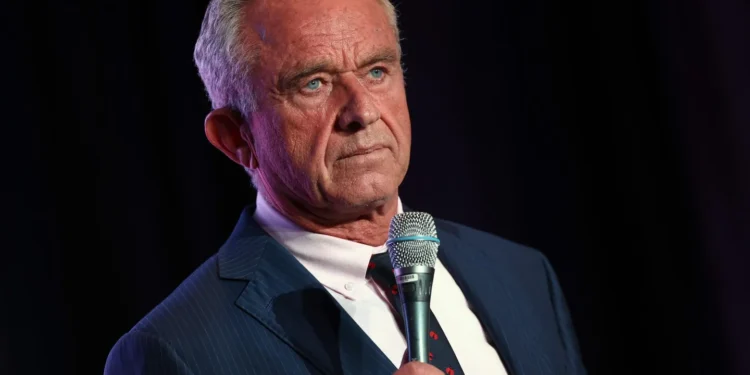The Supreme Court has denied final attempts by former presidential candidate Robert F. Kennedy Jr. to have his name removed from the ballots in Michigan and Wisconsin.
On Tuesday afternoon, the court rejected emergency applications Kennedy had submitted earlier this month. With ballots already printed and mail-in voting in progress, Kennedy’s legal team acknowledged that completely removing his name might be unfeasible. Instead, they suggested a workaround involving stickers to cover his name.
As is customary for the court’s emergency decisions, there was no detailed opinion or explanation accompanying the ruling. While no justice voiced dissent in the Wisconsin case, Justice Neil Gorsuch indicated he would have supported Kennedy’s request in Michigan. He did not elaborate extensively on his reasoning but mentioned his agreement with the three federal appeals court judges who believed that Michigan’s actions infringed upon Kennedy’s First Amendment rights by not allowing his removal or implementing more straightforward solutions, such as notifying voters at polling places about his withdrawal.
In response to the decision, Kennedy took to social media to express his discontent. He characterized the ruling as a politically motivated strategy aimed at diverting votes away from Trump, stating, “It is a purely political move in the hope that folks who would have otherwise voted for Trump will throw away their vote by voting for me instead. Don’t let them undermine this election.”
After exiting the race in August to endorse Republican candidate Donald Trump, Kennedy appears to have shifted his legal strategies to bolster Trump’s chances in competitive states while potentially reducing Democratic nominee Kamala Harris’s expected voter margins in areas she is likely to win.
Earlier in September, the Supreme Court also declined an emergency request from Kennedy to reinstate his name on the New York ballot, with no justices indicating any disagreement with that decision.
Discover how the upcoming election will affect American workers:


